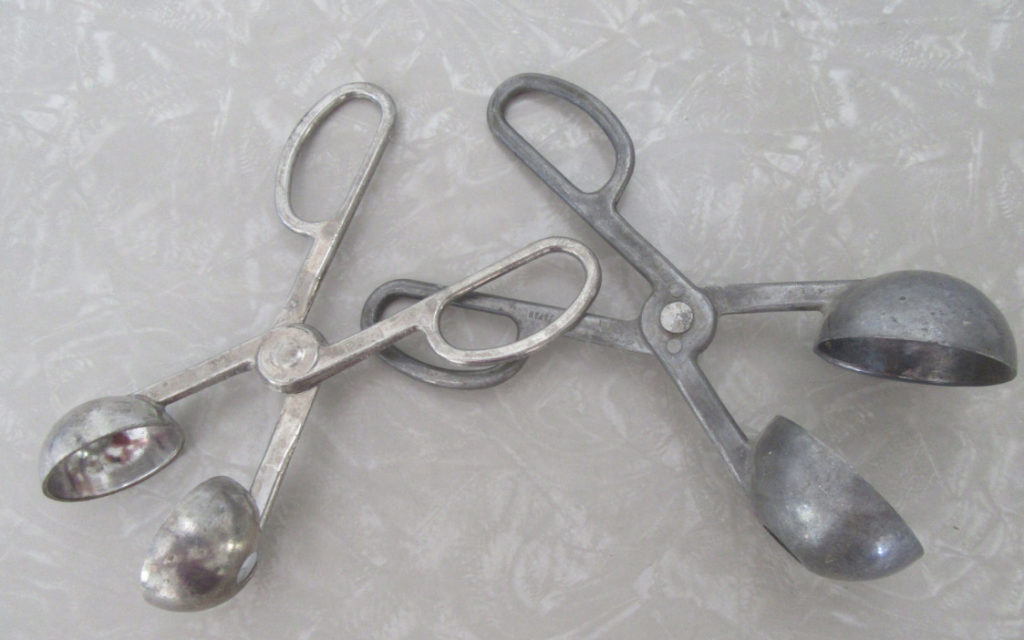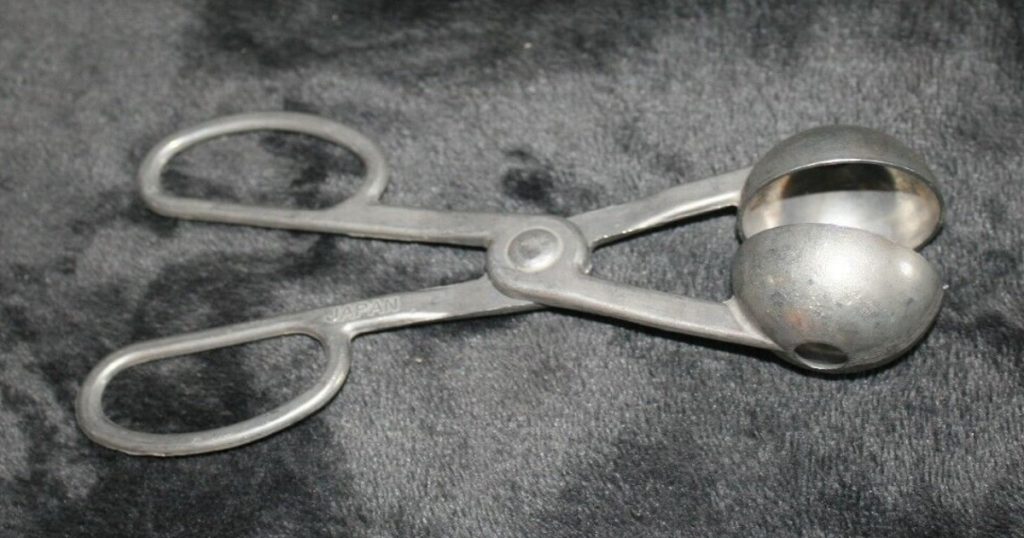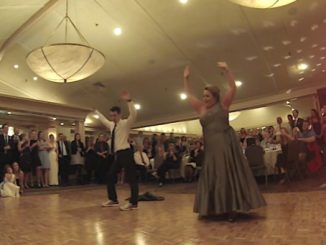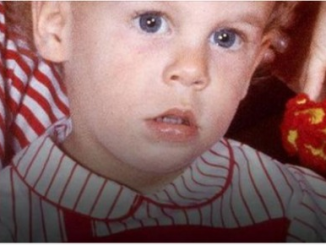
The ballet world is mourning the death of Dancing with the Stars’ Michaela Mabinty DePrince, an inspirational ballerina who beat staggering odds to become one of the world’s most famous dancers.
Michaela, an orphan from war-torn Sierra Leone, was a dancer with the Boston Ballet who gained widespread notoriety after starring in the 2011 documentary First Position. She died September 10 at only 29.
Adding to the family’s tragic loss, Michaela’s adoptive mom – who rescued Michaela from the filthy shelter where she was told she was “too ugly” to find a family – died only 24 hours later.
After her father was brutally killed in war-torn Sierra Leone and her mother died from fever, four-year-old Michaela Mabinty DePrince was abandoned by her uncle in a shelter where staff every day tried to break her spirit.
Known then as “Number 27” a young Michaela had little hope of finding a family as she had vitiligo, a condition that causes patches of skin to lose pigmentation.
The young girl, called “the devil child” because of her patchy skin, was told repeatedly that she was too ugly to be picked.
“We were all ranked from the most favored to the least, and I was at the very bottom for being rebellious and having a skin condition called vitiligo, which produces white freckles on my neck and chest,” Michaela said, adding she slept on a grass sleeping mat with “Number 26.”
Aside from the vomit-stained nightgown she was wearing, all she had was a magazine, which according to Glamour had (literally) blown onto her face. And on the cover was a ballerina en pointe – a dancer supporting all her body weight on the tips of her toes.
“The dancer looked beautiful and happy, that’s what caught my eye,” Michaela tells Glamour. “I wanted to be happy.”
And the crumpled old photo of the ballerina was the first thing she handed Elaine DePrince, who took her to her new home in New Jersey.
“There was so much love right away,” said Michaela, who over the next two decades would be the prima ballerina on the cover of magazines. “I had never been surrounded by something like that.”
‘My life is proof’
Michaela’s passion for dancing was ignited at a young age, and she pursued her dreams with remarkable dedication.
In 2011, Michaela became one of the stars of First Position, a documentary that followed six gifted dancers leading up to the competition for a place in the prestigious American Ballet Theatre’s Jacqueline Kennedy Onassis School of Ballet (JKO)
She not only earned a spot but was also awarded a scholarship to study at JKO.
The same year the award-winning documentary was released, Michaela also appeared on Dancing with the Stars.
“My life is proof that no matter what situation you’re in, as long as you have a supportive family, you can achieve anything,” Michaela said.
In 2012, the talented ballerina joined the renowned Dance Theatre of Harlem, where she continued to shine as a rising star. Her exceptional talent and grace later led her to the Dutch National Ballet, where the War Child Ambassador further established herself as a formidable presence in the ballet world.
While she was living in Amsterdam and training for The Nutcracker, she received a call, inviting her to travel to New Orleans and dance in Beyonce’s hour-long video, Lemonade, which was released in 2016.
Speaking with the Wall Street Journal of meeting the pop sensation, Michaela said, “She walked up to me and said, ‘It’s such an honor to have you here.’ I was really cheesy and said, ‘The honor is mine.’ I was on cloud nine.”
‘Beacon of hope’
On September 10, her family released a heartbreaking message about the principal soloist with the Boston Ballet.
“Rest in Power,” the post starts about the dancer who died on September 10. “With pain in our hearts, we share the loss of star ballerina Michaela Mabinty DePrince, whose artistry touched countless hearts and whose spirit inspired many, leaving an indelible mark on the world of ballet, and beyond.”
The Facebook post describes Michaela as an inspiration who “stood as a beacon of hope for many, showing that no matter the obstacles, beauty and greatness can rise from the darkest of places.”
The cause of her death has not yet been released.
Mom ‘spared the pain’
Only 24 hours after Michaela’s sudden death, her doting adoptive mom Elaine DePrince died on September 11 “during a routine procedure in preparation for a surgery.”
A family statement on Facebook explains that at the time of Elaine’s death, she was unaware that her daughter had died.
“As unbelievable as it may seem, the two deaths were completely unrelated. The only way we can make sense of the senseless is that Elaine, who had already lost three children many years ago, was by the grace of God spared the pain of experiencing the loss of a fourth child.” The message continues, “What the family is going through right now is truly unimaginably painful. Grieving two family members who died within a 24-hour period is tragic and devastating. We continue to ask for privacy…”
Rest in peace Michaela and Elaine. Please share your thoughts with us and then share this story so we can all send a lot of love to the family and friends of this mother-daughter duo.
Do You Recognize this Vintage Kitchen Tool?
The advancement of culinary arts has made a number of incredibly useful kitchen tools and gadgets available to the general public. On the other hand, antique kitchenware has a very endearing and reassuring quality. Some, like the retro meatball maker, may not even be recognizable after undergoing numerous design changes.
Though frequently linked to Italian cooking, it’s thought that Rome is where the first meatballs were created. Long ago, in addition to the more well-known Sweden, there were also versions in ancient China, Turkey, and Persia.
Some had different proportions of meat and rice or meat and lentils, while others had different ingredients. Meatballs can be a meal on their own or added to pasta dishes, soups, salads, and sandwiches.

Meatballs are a very simple and versatile staple dish. As a result, it is easy to understand why they have a prominent place in cuisine around the globe. It is challenging to precisely and consistently size and shape them by hand each time. Therefore, the meatball maker is a handy kitchen appliance that has long been in demand.
First off, a meatball maker is a useful tool for consistency, as was already mentioned. not only guarantees even cooking but also enhances the dish’s overall appearance. Secondly, kids will love using the meatball maker, especially the classic style. Finally, families can be surprisingly adaptable, giving them an additional reason to spend more time together.
Although the meatball maker’s primary function was to shape meatballs, it can also be used to create flawless falafel or hush puppies. In the meantime, the more contemporary designs of today make it possible to do things like make the ideal cake pop or cookie dough scoop.

You can find antique or vintage meatball makers at thrift stores and antique stores. As an alternative, you can find a variety of contemporary meatball makers online or in kitchen supply stores. Certain pieces bear a striking resemblance to those timeless and endearing vintage pieces, even though their shapes and functions differ greatly.
Modern Meatball Maker Designs
The meatball master, for instance, is a meatball shaper that can hold 32 identically sized and perfectly formed meatballs at once. The meatballs can be kept on this plastic tray until you’re ready to cook them. However, as one person astutely pointed out, “the amount of time it takes makes it easier to do by hand,” so their kids use it for play-dough.
This meatball maker is a well-liked kitchen appliance for people who have big families or frequently host guests.Similarly, the ‘Mind Reader Magic Meatball Maker‘ makes 16 perfectly round meatballs and stores them in a plastic container until it’s time to cook the perfect, mouthwatering bite size meatball, cake pop, or dumpling.
Resembling Vintage Designs
The typical “Meat Baller” is another well-liked meatball maker. There are finger slots that have an old-fashioned look or resemble scissors. It is actually comparable to the previous version in nearly every aspect. Today’s model, on the other hand, has polished stainless steel that is “non-stick,” non-slip padded handles, and produces a flawlessly presented ball of food.
The Spring Chef Cookie Scoop is an additional choice with a somewhat different design; while it’s not intended to be a meatball maker, it can still be used for that purpose and has a cute appearance. It can be squeezed together to resemble a pair of locked pliers and has a silicone-padded handle.
In contrast, the LEEFONE Meatball scoop lacks padded handles, making it closely resemble the vintage model. On the other hand, it is composed of polished stainless steel noonstick.
A useful and adaptable kitchen tool, meatball makers are used to make the ideal meatballs, which are a staple of many ancient recipes. The meatballs are surprisingly versatile, making them an excellent bite-sized appetizer for dinner parties or a great complement to a variety of dishes, such as pasta and soups. Both the chef and the diner will undoubtedly have a better experience with the meatball maker.



Leave a Reply